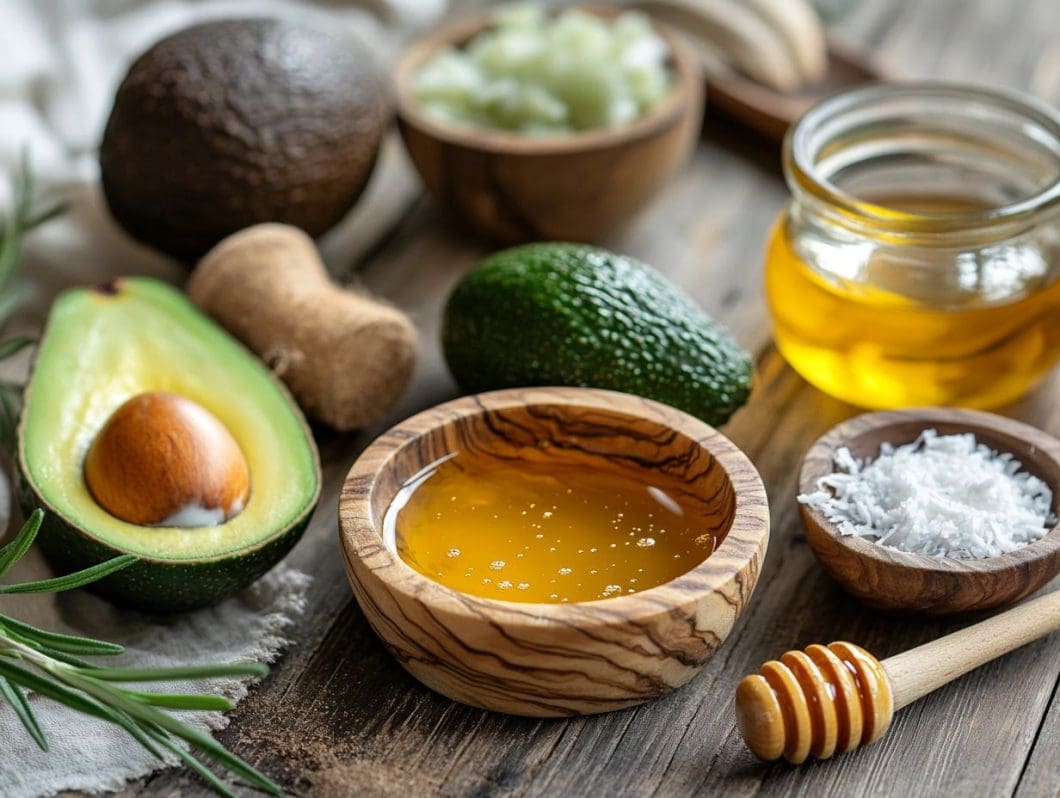Are you searching for a simple and effective way to achieve radiant skin? DIY face masks, enriched with homemade ingredients, might be just what you need!
Packed with natural ingredients such as turmeric and honey, these masks can cater to your specific skin type and concerns, leaving you with a healthy glow.
We explore the numerous benefits of DIY face masks, guide you in selecting the right ingredients, and provide easy recipes using yogurt and oatmeal to try at home.
Plus, we share essential tips, including dermatologist advice, to maximize their effectiveness. Your journey to luminous skin starts here, with nourishing skin care routines!
What are DIY Face Masks?
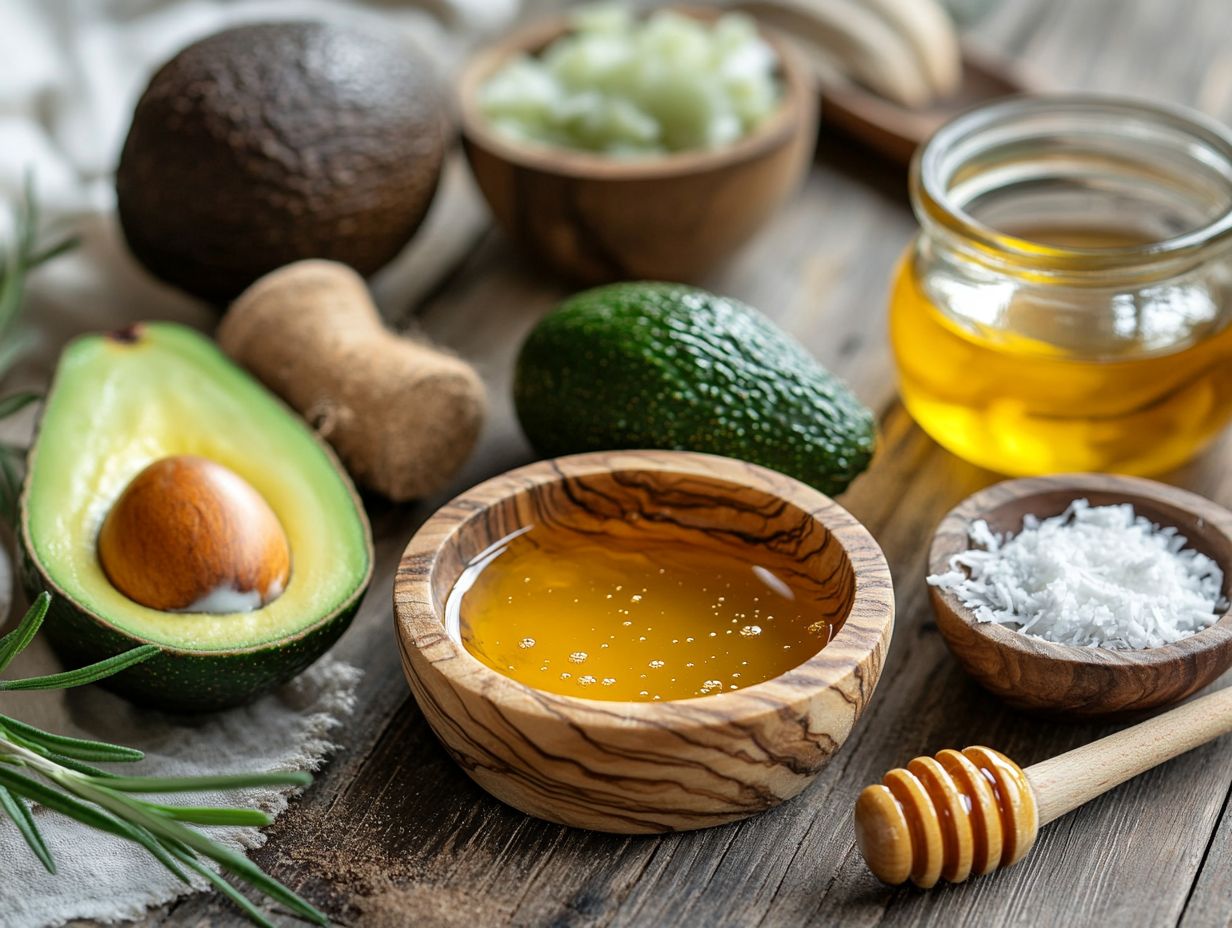
DIY face masks have emerged as a favored option among skincare enthusiasts seeking effective, cost-efficient, and natural methods for enhancing skin nourishment.
This increase in interest can be attributed to a heightened awareness of the benefits associated with utilizing simple, homemade ingredients. Each component, from the moisturizing properties of coconut oil to the exfoliating advantages of oatmeal, can address specific skin needs, thereby offering a customizable approach to skincare.
Incorporating these masks into a comprehensive skincare regimen not only improves overall skin health but also fosters a mindful routine centered on self-care. Various types of masks, such as clay masks for oily skin and sheet masks infused with hyaluronic acid for hydration, provide tailored solutions for distinct concerns.
The holistic approach of DIY skincare give the power tos individuals to experiment, facilitating the attainment of a radiant glow without an exclusive dependence on commercial products.
Benefits of Using DIY Face Masks
Utilizing DIY face masks presents a multitude of benefits that address diverse skin types and concerns, making them an attractive option for those seeking radiant skin and effective skincare solutions.
These masks can be customized to meet individual requirements, employing natural ingredients that offer nourishing properties, enhance skin hydration, and supply essential vitamins, such as Vitamin E, along with antioxidants.
By incorporating homemade ingredients such as turmeric, honey, and aloe vera, individuals can leverage the effectiveness of beauty treatments that not only enhance appearance but also contribute to overall skin health.
Natural Ingredients for Glowing Skin
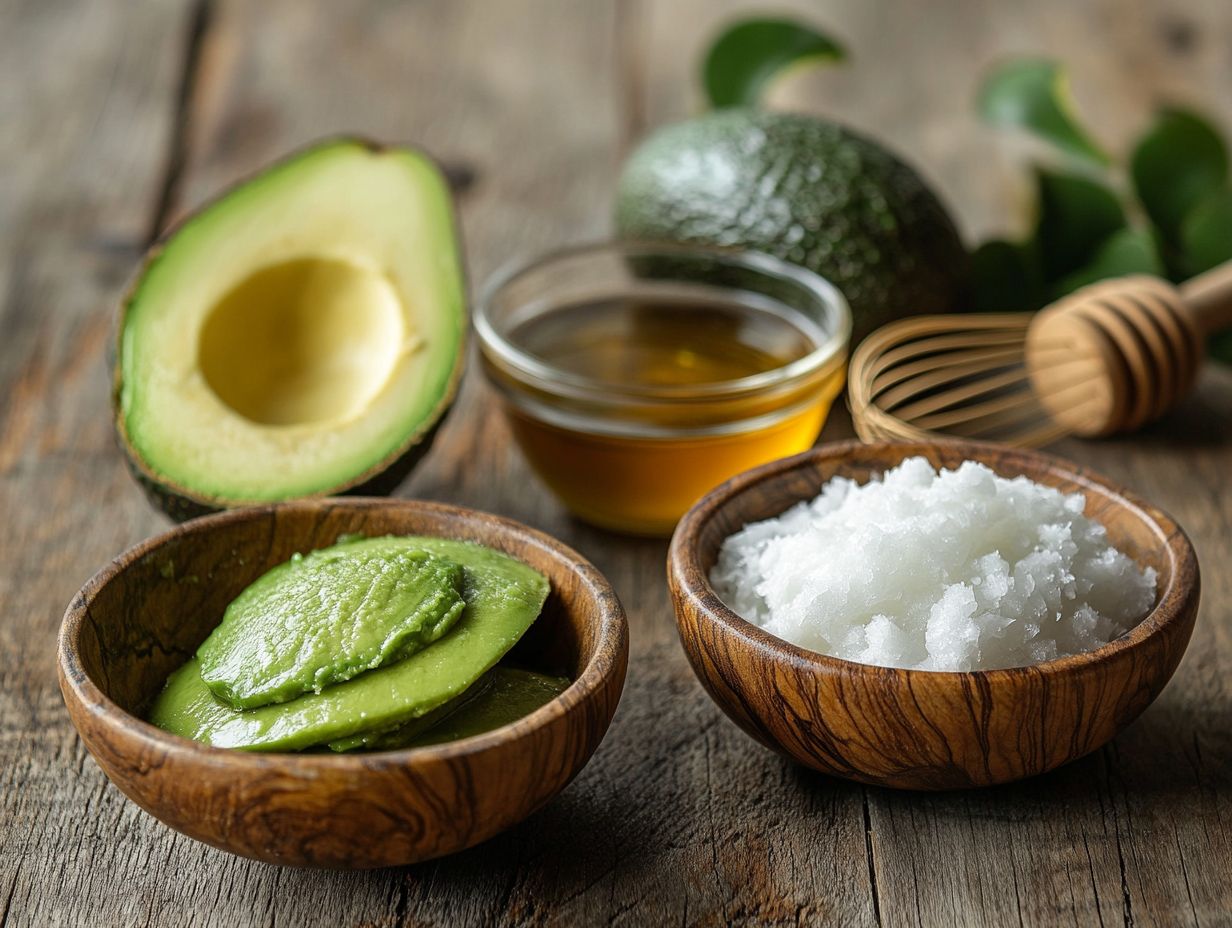
Natural ingredients play a vital role in achieving radiant skin through the use of DIY face masks, which can be both effective and gentle for various skin types, ensuring healthy skin.
By incorporating a diverse range of components, individuals can create personalized treatments in the comfort of their homes. For instance, the inclusion of green tea provides powerful antioxidants that help combat premature aging, while oatmeal serves as a soothing exfoliant, ideal for sensitive skin.
A simple mask recipe may involve a combination of mashed avocado, honey, and a splash of lemon juice, which can be applied for 15 minutes to achieve a brightening effect. Alternatively, blending yogurt with ground turmeric can not only help reduce acne but also enhance the overall luminosity of the skin.
These recipes leverage the beneficial properties of natural ingredients, transforming ordinary skincare routines into revitalizing practices that promote health and vibrancy.
How to Choose the Right Ingredients
Selecting appropriate ingredients for DIY face masks is vital to address specific skin types and concerns, thereby promoting effective skincare while minimizing the risk of irritation.
Consulting a dermatologist is advisable to gain insight into one’s unique skin needs, particularly for individuals with sensitive skin or a tendency toward irritation. To reduce the likelihood of adverse reactions, it is recommended to conduct a patch test prior to applying any new homemade ingredients.
This practice ensures a safe and beneficial experience within the skincare regimen.
Identifying Skin Type and Concerns
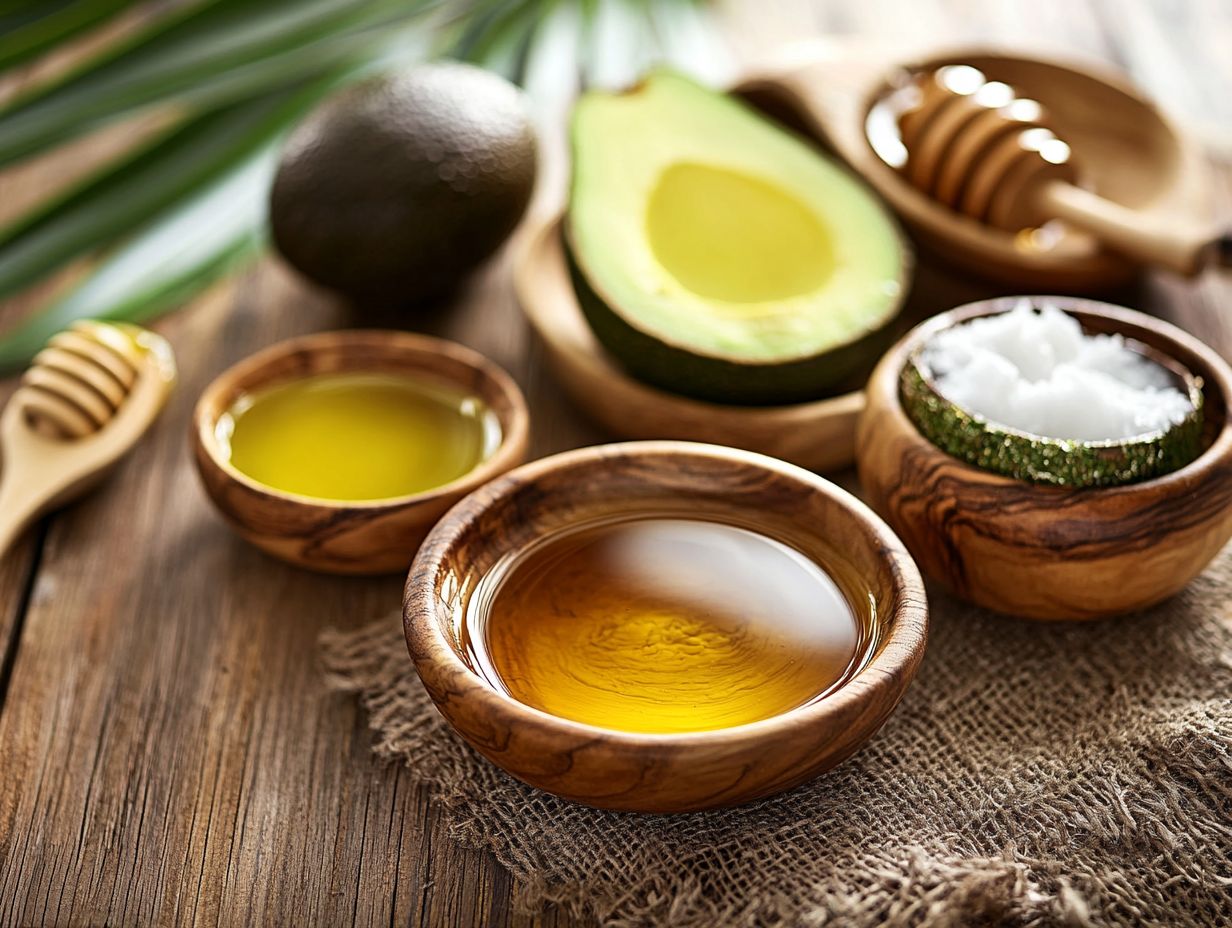
Identifying one’s skin type and specific concerns is a crucial step in developing effective DIY face masks tailored to individual needs, ultimately leading to a healthier and more radiant complexion.
Each skin type presents distinct challenges; for instance, individuals with oily skin may experience breakouts and enlarged pores, while those with dry skin often face flakiness or sensitivity. Combination skin can vary between these extremes, necessitating a customized care approach.
To determine their skin type, individuals should assess how their skin feels after cleansing. For those with oily skin, clay masks containing tea tree oil can effectively absorb excess oil, whereas honey and avocado masks are ideal for dry skin in need of hydration.
Individuals with combination skin may find a dual mask approach beneficial, applying a hydrating formula to dry areas and a clarifying mask to regions exhibiting oiliness.
Reputable brands such as The Ordinary and Lush provide ingredients that can be incorporated into DIY recipes, ensuring a nourishing treatment that addresses specific concerns and promotes overall skincare health.
Top DIY Face Masks for Glowing Skin
The leading DIY face masks for achieving glowing skin present a variety of straightforward recipes that incorporate natural ingredients, ensuring that each application provides nourishing benefits while enhancing one’s skincare routine.
For instance, turmeric face masks are renowned for their anti-inflammatory properties, while avocado masks offer deep hydration. These masks can be customized to accommodate individual preferences and skin types.
By exploring an array of face mask recipes, individuals can effortlessly create their own beauty treatments at home and reap the benefits of organic ingredients.
Recipes and Instructions
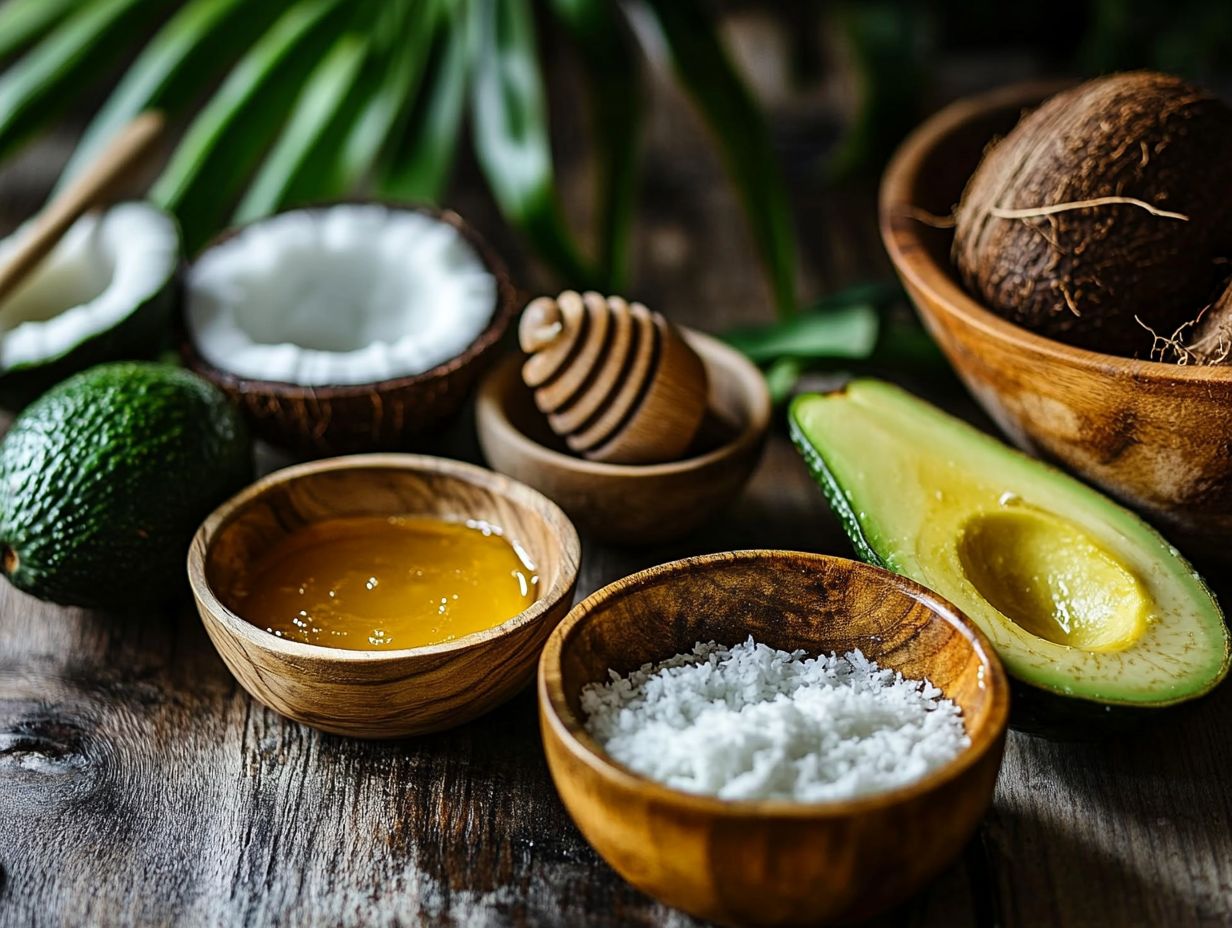
When developing effective DIY face masks, it is essential to have clear recipes and instructions to achieve optimal results for the skin. For example, a yogurt-based recipe can serve as an excellent foundation for an exfoliating mask, while the addition of honey can enhance its moisturizing properties. Alternatively, oatmeal masks offer gentle exfoliation and nourishment, making adherence to specific ratios and preparation steps critical for achieving the best outcomes.
By experimenting with various ingredients—such as avocado, which is rich in vitamins, or aloe vera, known for its soothing properties—individuals can customize these masks to address specific skin concerns. Incorporating essential oils not only adds a pleasant aroma but also enhances the overall effectiveness of the treatment. It is advisable to measure ingredients precisely, as this can significantly influence both the texture and potency of the mask.
Understanding the benefits of each component enriches the DIY experience and allows for personal customization, ensuring that each application is both enjoyable and beneficial.
Tips for Using DIY Face Masks
To maximize the benefits of DIY face masks, it is essential to adopt specific tips and practices that can enhance one’s skincare routine while avoiding common pitfalls.
Understanding the appropriate frequency of use, ensuring proper application techniques, and being aware of potential skin irritation are fundamental factors in achieving optimal results.
By integrating these recommendations into your skincare regimen, you can fully enjoy the advantages of homemade beauty treatments without compromising the health of your skin.
Maximizing Benefits and Avoiding Mistakes
Maximizing the benefits of DIY face masks requires not only careful selection of ingredients but also an awareness of common mistakes that could impede skincare results. Prioritizing a patch test before applying any new mask is essential to avoid skin irritation, thereby allowing individuals to fully enjoy the soothing and nourishing properties of the ingredients.
By adhering to best practices and being attentive to skin reactions, one can effectively enhance beauty treatments for a healthier complexion.
It is particularly important to note that overuse of these masks may lead to adverse effects, so it is advisable to limit application to once or twice a week, depending on individual skin type. Attention should be paid to how the mask feels during application; if discomfort arises, it may not be suitable for the skin.
Focusing on gentle, calming ingredients such as oatmeal or aloe vera can provide significant benefits, especially for those with sensitive skin. These components are well-known for their soothing properties and can help mitigate irritation.
Additionally, it is crucial to wash the face thoroughly before application, as properly prepared skin will better absorb beneficial nutrients, thereby maximizing the overall effectiveness of the DIY skincare routine.


